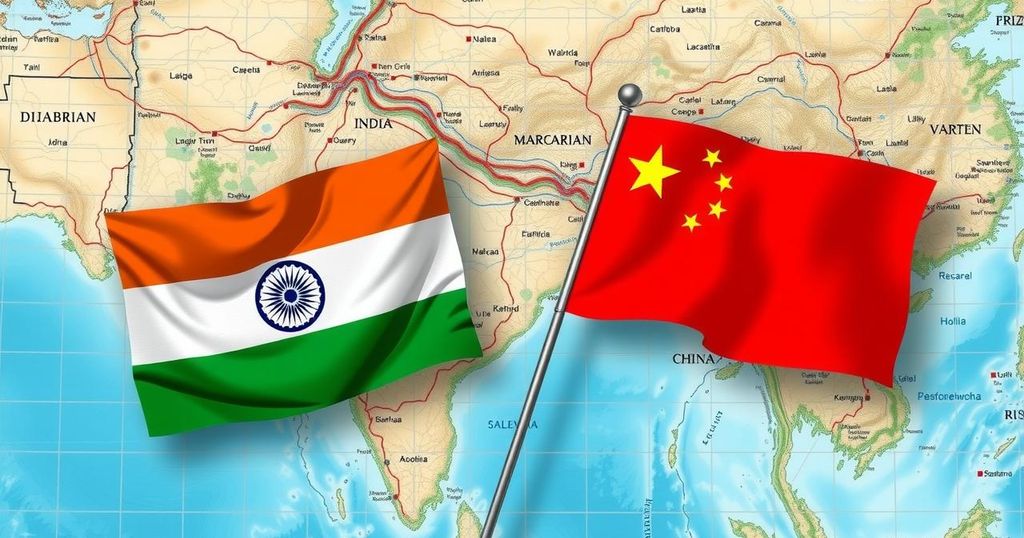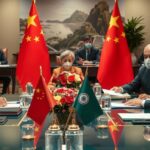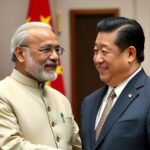India and China Collaborate on Cross-Border Initiatives Amid Renewed Diplomatic Efforts
India and China are making concerted efforts to enhance cross-border cooperation, as recent talks between Special Representatives Ajit Doval and Wang Yi pave the way for advancements in key areas such as the Kailash Mansarovar Yatra and border trade. The discussions follow a recent agreement on the disengagement of front-line forces, indicating a potential thaw in relations after extended military tensions. However, divergent statements from both sides hint at residual complexities in their diplomatic interactions.
India expressed its commitment to work collaboratively with China on advancing cross-border cooperation and mutual understanding, as articulated during a recent meeting of the Special Representatives on the border issue. National Security Adviser Ajit Doval and China’s Foreign Minister Wang Yi engaged in formal talks in Beijing, marking a significant diplomatic effort after nearly five years. The discussions focused on resuming the Kailash Mansarovar Yatra, sharing data on trans-border rivers, and facilitating border trade, signifying a potential thaw in relations following a prolonged military standoff since 2020.
Following an understanding on disengagement of frontline forces in the Ladakh sector of the Line of Actual Control (LAC), both sides deemed the talks as offering “positive directions” for future exchanges. Indian external affairs ministry spokesperson Randhir Jaiswal confirmed the forward momentum, indicating that further actions will be taken to foster these cross-border exchanges. It is noteworthy that the Kailash Mansarovar Yatra has not taken place since its suspension in 2020 due to heightened military tensions and a significant clash resulting in casualties on both sides.
The recent meeting followed a prior agreement reached during a summit between Prime Minister Narendra Modi and Chinese President Xi Jinping, where both leaders expressed a commitment to address the border dispute and normalize bilateral relations. As part of the ongoing discussions, the Special Representatives have also explored frameworks for peaceful border management and progressed towards resuming full-fledged trade relations. Despite China’s foreign ministry claiming a “six-point consensus” post-meeting, Indian representatives refrained from endorsing that characterization, indicating continuing divergences between the two nations.
The separate statements released by both countries after the talks underscore the complexities in their diplomatic relations and the cautious optimism surrounding future negotiations.
The meeting between India’s and China’s Special Representatives on border issues signifies an important step towards resolving long-standing tensions that escalated dramatically in 2020 due to military confrontations in the Ladakh region. The two nations have historically struggled with boundary disputes, and recent discussions stem from ongoing efforts to stabilize relations after severe clashes, including the deaths of soldiers during confrontations in the Galwan Valley. The significance of the Kailash Mansarovar Yatra within the context of bilateral relations further emphasizes the cultural and spiritual exchanges that are often disrupted by political strife. Recovery of normalcy in cross-border trade and cooperation represents broader aspirations for mutual benefit and sustained peace in the region.
In conclusion, India’s ongoing dialogue with China through its Special Representatives marks a pivotal moment in addressing historic border tensions. The commitments made during their recent meeting underscore a shared interest in advancing cross-border cooperation on multiple fronts, including religious pilgrimages and trade. However, the absence of a mutual consensus highlights the challenges that remain, reflecting the intricate dynamics of India-China relations as both nations seek to navigate their complex historical narratives towards a constructive future.
Original Source: www.hindustantimes.com








Post Comment